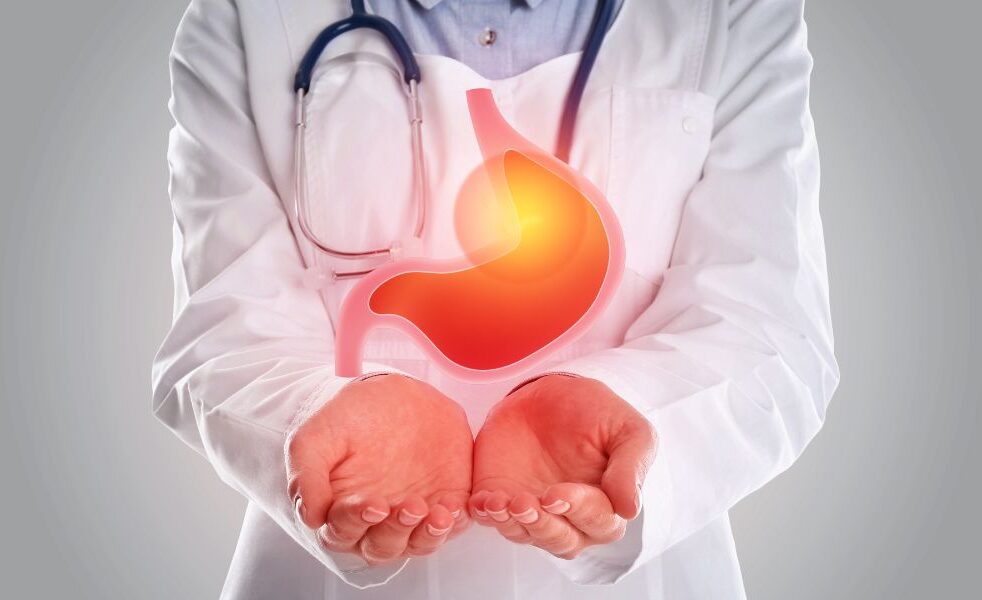BLOG
Understanding Stomach Cancer: Causes, Symptoms, and Treatment Options

Stomach cancer, also known as gastric cancer, is a disease in which malignant (cancerous) cells form in the lining of the stomach. Despite being less prevalent in the modern world compared to the past, stomach cancer remains a serious and potentially deadly disease, particularly if not diagnosed early. In this comprehensive guide, we will explore the causes, symptoms, and treatment options for stomach cancer, including insights into the best medicinal approaches currently available.
What Causes Stomach Cancer?
The exact cause of stomach cancer is not clear, but several factors are known to increase the risk of developing this disease. These risk factors include:
- Helicobacter pylori infection: This common stomach infection is linked to both peptic ulcers and the development of stomach cancer.
- Diet: A diet high in smoked, pickled, or salty foods and low in fruits and vegetables can increase the risk of stomach cancer.
- Smoking: Smokers are more likely to develop stomach cancer than non-smokers.
- Family history: Having a family history of stomach cancer can increase the risk.
- Chronic stomach inflammation: Long-standing inflammation in the stomach, such as from chronic gastritis or pernicious anemia, can increase the risk.
- Previous stomach surgery: People who have had part of their stomach removed for other conditions may have an increased risk of stomach cancer.
- Age: Stomach cancer is more common in people over the age of 50.
- Gender: Men are more likely than women to develop stomach cancer.
- Ethnicity: In some parts of the world, such as Japan, China, Southern and Eastern Europe, and Central and South America, stomach cancer is more common, suggesting that genetic and environmental factors may play a role.
Symptoms of Stomach Cancer
Symptoms of stomach cancer are often vague and can be easily mistaken for less serious conditions. Common symptoms include:
- Indigestion or heartburn
- Discomfort or pain in the stomach area
- Nausea and vomiting
- Diarrhea or constipation
- Bloating of the stomach after meals
- Loss of appetite
- Sensation of food being stuck in the throat while eating
- Weakness and fatigue
- Vomiting blood or having blood in the stool, which may appear black
Many of these symptoms can be associated with other, less serious conditions. However, if you experience any persistent symptoms, it is essential to consult a healthcare provider.
Diagnosing Stomach Cancer
The diagnosis of stomach cancer typically involves several steps, including:
- Medical history and physical examination: Your doctor will ask about your symptoms, medical history, and risk factors.
- Endoscopy: A thin tube with a camera on the end is passed down your throat and into your stomach to look for signs of cancer.
- Biopsy: During an endoscopy, the doctor may remove a small piece of stomach tissue to look for cancer cells.
- Imaging tests: Tests such as CT scans, MRI scans, or PET scans can help determine the spread of cancer.
Treatment of Stomach Cancer
Treatment for stomach cancer depends on the stage of the disease, the patient’s overall health, and personal preferences. Common treatment options include:
- Surgery: Surgery is the most common treatment for stomach cancer if it is diagnosed early enough. It involves removing part or all of the stomach, depending on the extent of the cancer.
- Chemotherapy: This involves using drugs to kill cancer cells, usually given before surgery (to shrink the tumor) or after surgery (to kill any remaining cancer cells).
- Radiation therapy: This uses high-energy rays to kill cancer cells. It is often used in combination with chemotherapy.
- Targeted therapy: These drugs target specific aspects of cancer cells to stop them from growing and dividing.
- Immunotherapy: This is a newer form of cancer treatment that boosts the body’s natural defenses to fight cancer.
The Best Medicine for Stomach Cancer
The "best" medicine for stomach cancer depends on various factors including the stage and genetic makeup of the cancer. However, some of the commonly used medications include:
- Chemotherapeutic agents such as fluorouracil, capecitabine, and oxaliplatin are frequently used.
- Targeted therapies such as trastuzumab for cancers that overexpress the HER2 protein.
- Immunotherapy agents like pembrolizumab are also being increasingly used, particularly for advanced cases that express high levels of PD-L1.
Living with Stomach Cancer
Living with stomach cancer can be challenging, but managing the disease is possible with the right medical care and support. It is crucial to work closely with a healthcare team that understands your needs and treatment options. Support from loved ones and community resources can also be invaluable.
Conclusion
Stomach cancer poses significant challenges, but advances in medical science have improved the diagnosis, treatment, and management of this disease. It is vital for individuals to understand the risk factors and symptoms of stomach cancer to seek timely medical advice. With effective treatment plans, including the latest medications, surgery, and supportive care, many patients are able to manage the disease and maintain quality of life. If you or a loved one are experiencing any symptoms or have concerns about stomach cancer, consult with a healthcare professional to discuss your options. More

